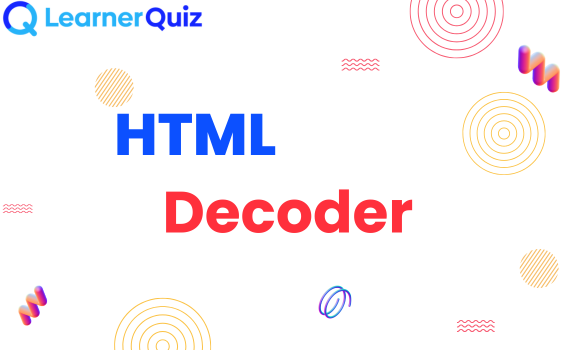


Decoding HTML is essential for several reasons:
Clarity in Coding: This format can be very difficult to work with since encoded HTML is typically nearly impossible to read. This, understood in the literal sense, helps to read the code, which in fact means:
Web Development: Software developers often have to understand HTML while using third-party service, API or external content.
SEO Considerations: Understanding HTML is crucial to make sure that the search engine adopts the right interpretation of the contents in a web page. Symbols can negatively affect how the page is ranked in the search engine since it affects its indexing.
Security Purposes: HTML encoding is at times applied to prevent Web Application from becoming insecure for instance through Cross-Site Scripting (XSS). Nevertheless, while evaluating the safety of a given webpage, analyzing perils entailed in the HTML is effectively done by decoding them.
To grasp a better notion of decoding, it is essential to know about encoding in advanced first. HTML encoding is used to translate reserved HTML characters with character entities. These entities are unique sorts of characters that are understandable by browser in its developed format.
It is done so that the browser does not consider them as some element of the HTML document. For instance, if you input a < symbol bare in HTML code, the browser may well interpret it as the start of a tag. By encoding it as <, the browser knows it's just a less-than symbol.
Decoding the encoded HTML is like translating it back to its original form. For example, when you encounter <, an HTML Decoder will convert it back into <.
Without decoding, it’s hard to understand what the code is doing. But once decoded, it becomes clear that it’s a link to the example.com website.
An HTML Decoder is particularly useful in the following situations:
Working with Data from APIs: Many APIs send responses with HTML-encoded content. To properly display or work with this data, you need to decode it.
Debugging Web Pages: Sometimes, HTML content gets encoded in error, causing display issues on a webpage. Developers can decode the HTML to identify and fix the problem.
Writing Blog Posts: If you're writing a blog post that contains HTML code, it might get encoded for security purposes. Decoding helps format the post correctly.
HTML Decoding is a simple but powerful process that helps make encoded HTML content readable. Whether you’re a developer troubleshooting a webpage or a writer dealing with encoded text, an HTML Decoder is an essential tool. It ensures that the HTML code is clean, readable, and functional.